Thomas E. Ricks's Blog, page 77
November 15, 2013
My rules for thriving in Washington, DC
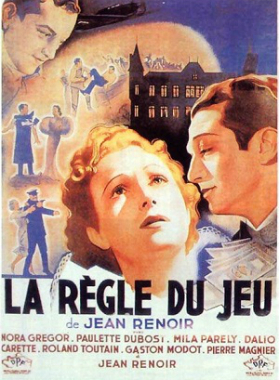
Inspired
by Andrew Exum's exumple, I decided to try
writing down my rules for living and working as a reporter for two decades in
policy-oriented Washington:
•Treat
people decently. The less power they have, the more conscious you should be of
this.
•Be
cordial with the people you cover, but don't be friends with them. Socialize
with them only rarely if ever.
•Partisan
views have nothing to do with character. There are good people, and world-class
shits, across the ideological spectrum.
•Enjoy
the game, the passing pageant of life you are lucky enough to witness. (This is
similar to Andrew's rule about keeping a sense of humor.) When you stop
enjoying it, you run the danger of becoming embittered, so try to leave
Washington when that happens.
•Be
loyal to your institution, but also be conscious that eventually it probably
will disappoint you.
•Remember
that in Washington, all victories are temporary, and to a degree
self-correcting, especially in a system built on compromise and balance. This
is especially helpful to remember when you lose.
•While
we're on the subject: Losing, including public humiliation, is actually a good
thing to experience. It will make you more empathetic. You also will find out
who your friends are. Make a point of reaching out to
people who are down.
•Discover
a way to find and maintain perspective. For me, this was escaping into history
and nature -- kayaking at Great Falls, hiking in the Blue Ridge, weekends with
my wife and kids at state parks in West Virginia. History and nature, and time
with family, made me realize that the quotidian ups and downs were less
important than they felt.
What rules would you add? Delete?
In case you thought 'Doonesbury' was exaggerating about all the IEDs in Iraq

From
a good article the other day about
retired Army Col. Eric Welsh by Mark Davis of the Atlanta Journal-Constitution:
Welsh recalls July 2, 2007.
His Humvee was rolling along a road in Mosul when he heard a boom, felt the
vehicle shake as if the ground was about to swallow it. The force of the blast
knocked him out. When he came to, Welsh, shrugging off his latest concussion,
returned to his troops. A physician stopped him. How many blasts does this
make? the doctor asked. Welsh thought. "I don't know," he replied.
Rebecca's War Dog of the Week: Belatedly, a view of Veterans' Day

By Rebecca Frankel
Best Defense Chief Canine Correspondent
There were a lot of great canine-soldier photos and stories
that popped up on Monday's wire. But this one stood out. As Tom might say, it's
one of those times when the photo stands on its own:
A dog snuggles up to a woman with a
prosthetic leg while waiting to march in the Veteran's Day Parade on Nov. 11,
in New York City. The parade included members of all four branches of service,
as well as members of the FDNY, NYPD and veterans from all major conflicts that
the United States has been involved with since World War Two.
November 14, 2013
Combat Culture: Is your donation to veterans' groups going toward buying votes -- and is that the vote you want?
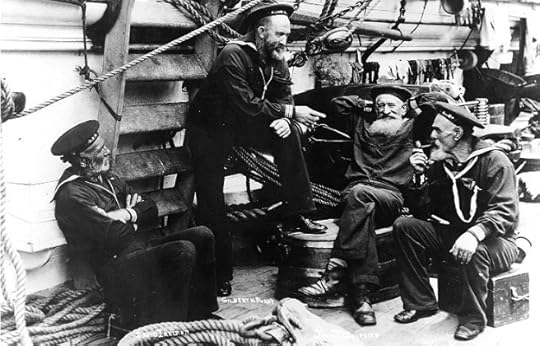
By Jim Gourley
Best Defense columnist
America spent Monday
celebrating Veterans's Day. In recent years, journalists and military observers
(Mr. Ricks among them) have remarked on the difference between how Americans
remember the occasion in comparison to Europeans and our Canadian neighbors,
and the relative merits of each approach. For every football halftime show that
lauds our nation's heroes with girls in
star-spangled hot pants, there's an op-ed saying we shouldn't do that. Whichever side of the fence people fall on, they
have something in common with their opposites -- they both feel that we should
be doing something to support our military.
"Doing
something" is quite a dilemma for a country that is at once so acutely
aware of, yet so physically removed from, its veterans. Over the last 10 years,
Americans have gone with that convenient go-to mechanism of philanthropy. They
give money.
Veterans' charities
are most helpful in their effort to focus logistics. They perform good works by
bringing qualified help and money to the people in need. But as recent American
conflicts heightened, even the burgeoning size and population of non-profits
wasn't sufficient to deal with the legions of veteran issues. From suicide to
schooling, the issues of reintegrating America's veterans became a domestic
equivalent to the war on terror's game of whack-a-mole. The emergence of groups
like Student Veterans of America and the Iraq and Afghanistan Veterans of
America showed non-profits a new approach by appealing directly to the
government to retool its existent, outdated care systems. Lobbying among
veterans' non-profits increased. Today, non-profits that solicit donations from
people to help veterans are sending significant amounts of money to Capitol
Hill and the White House.
The numbers vary,
and the biggest spenders are not always household names. Paralyzed Veterans of
America spent $250,000 on lobbying last year, compared to just $200,000 from
the Wounded Warrior Project. Iraq and Afghanistan Veterans of America also
outspent WWP with $230,000 poured into political efforts. AMVETS led all
veteran organizations with $260,000, down from $590,000 in 2011. While these
sums pale in comparison to the $50.4 million spent on lobbying by the defense aerospace industry in 2012, it's
remarkable that these 501(c)(3) groups each spent enough money to crack into
the top 15 on the list of corporate lobbyists. Even the USO spent $400,000
between 2011 and 2013 on lobbying. While most of these groups are open about
their broad policy goals, it's a little more difficult to find which specific
items of legislation they support or oppose, and to what extent they try to
influence the process.
Some of the
initiatives these lobbying dollars fund may raise eyebrows among donors. The
AMVETS legislative page declares that the organization "has been a leader
since 1944 in helping to preserve the freedoms secured by the Armed Forces
of the United States of America. Today, our organization continues its
proud tradition, providing not only support for veterans and active military
service members in receiving their earned entitlements but also countless
numbers of community services which enhance the quality of life for this
Nation's citizens." Among its own 2014 resolutions, it adopted an official
stance to continue support for Taiwan, advocacy for a bill protecting the U.S. flag
from desecration, and to press the U.S. government for a postage stamp
recognizing AMVETS as an official veterans' service organization.
The money trail runs
in both directions. Few bills received as much veterans' group lobbying support
as H.R. 2433, the VOW to Hire Heroes Act of 2011. It passed both houses
unanimously (raising the question of how much lobbyist support was necessary),
providing employers with tax credits for hiring veterans. No large corporation
has latched onto this initiative as much as Wal-Mart. Not everyone thinks this is what the deal was supposed to accomplish.
In addition to the wage debate, there's the matter of how donations contributed
to the situation. It could be argued that people gave money to charitable
organizations, which then used it to gain access to politicians so they could
secure passage of a bill that will put veterans in minimum-wage jobs, so big
companies can get tax breaks.
The consequences of
this involvement go beyond questions about whether the money is hitting the
donors' intended targets. Politics leads to sticky political issues. The VFW
spent nearly $250,000 on lobbying annually prior to 2001. It recently stood up
a parallel political action committee to support its legislative aims. That
experiment ended abruptly in 2010 after the PAC's board angered members with
controversial endorsements of congressional candidates. As reported by Stars
and Stripes last week, former
Executive Director of Student Veterans of America Mike Dakduk now works in the
employ of the Association of Private Sector Colleges and Universities -- which
arguably works on behalf of SVA's primary antagonists.
Analyses by the
Center for Responsive Politics suggest that lobbying expenditures by non-profit
veteran groups are falling coincident with those of the defense industry. It is
likely that, as the United States retracts from its present conflicts, the need
to care for veterans will recede in line with that for new military equipment.
Certainly, the noise about it has already abated. The box has been opened,
though. More than ever, non-profits see government lobbying as a major
instrument to achieve their objectives. This is a remarkable turn of
philosophy, as the basic premise of non-profit organizations is to achieve
goals outside of governmental means. In coming years, it will be interesting to
see what percentage of donor contributions are directed toward lobbying, and
what specific initiatives veterans' organizations choose to endorse.
Jim Gourley is an
author, journalist, and former military intelligence officer.
Rosa Brooks on Obama vs. his generals: This is some scary, lamentable stuff

Rosa Brooks, a
smart
former Pentagon official, has a terrific piece in
the debut issue of Politico Magazine
on the frosty relationship between the Pentagon and the Obama White House. She
writes:
In my
interviews, however, many senior military leaders complained of feeling baffled
and shut out by a White House National Security Staff that, in their view,
combines an insistence on micromanaging minor issues with a near-total
inability to articulate coherent strategic goals. "The NSS wants to run the
show, day to day and minute to minute," laments a former military official, "so
they have no time -- they're almost incapable of strategic thinking."
.... There was the White House staffer who called me
up and asked me to have CENTCOM move a U.S. drone to Kyrgyzstan, for instance,
in an effort to track an alarming outbreak of ethnic violence. When I told him
why I couldn't -- the chain of command just doesn't work that way, and in any
case no formal planning or risk assessments had taken place -- he quickly grew
exasperated.
"You guys" -- the Pentagon -- "are always
stonewalling us on everything. I'm calling you from the White House. The
president wants to prevent genocide in Kyrgyzstan. Whatever happened to
civilian control of the military?"
"You," I had to tell him, "are the wrong
civilian."
As if to emphasize the culture
clash, after episodes like this one, the response from some of my Obama
administration colleagues in the White House was bitter: Had I "gone over to
the other side?" one asked.
Tom again: That certainly rings
true to me. There is a tendency in many of Obama's officials, I think, to see
the military as a political interest group, and to treat honest dissent as a
form of disloyalty -- not recognizing that top generals are required to give
their personal views when asked to do so by Congress. Slapping down generals
for honesty was a deleterious tendency of Lyndon Johnson.
(Among the potential conflicts of
interest in this item: I am working with Rosa on a project at the New America
Foundation, and she used to date a good
friend of mine. Plus Susan Glasser, the editor of Politico Magazine, used to be my boss at Foreign Policy magazine, and before that at the Washington Post. I am sure I will think
of more. Oh yeah, Rosa also has a weekly column in
Foreign Policy. Also, I talked to her
about this article when she was writing it.)
A few words in support of Snowden

This kind of fits
what I asked for the other day (in a comment) as I tried to understand the argument in support of Edward
Snowden. These were written by "FG42":
In my mind, Snowden did a great
public service to our country. If he hadn't blown the whistle, the gargantuan
IC bureaucracy would have inexorably grown even bigger and more powerful -- and
neither Congress, the media, the judiciary, or our political leaders would have
known enough to effectively provide oversight and direction. And of course, the
public would have known nothing at all. Clearly the NSA in this case was on
track to becoming a runaway agency. The question we should ask is: before
Snowden, what mechanism or process was there to objectively calibrate the
balance between the need for surveillance and the privacy rights of citizens? And
after Snowden, were there substantive reforms and improvements made as a result
of the disclosures? And let's not be too naive about the IC's claims that the
disclosures were so damaging. The scope of NSA's activities surely was already
known to or anticipated by any foreign intelligence agency worth its salt, and
they would have taken the necessary precautionary measures. The greatest damage
probably was the embarrassment to the US.
Of course, I think Snowden needs to pay a penalty
for breaking the law, just as the civil rights demonstrators in the 1960's
expected jail as the price of civil disobedience. But the law is not supposed
to be a blunt instrument. That's why judges can impose a sentence, and then
suspend all or part of it. Or a person can be convicted, and then be paroled or
pardoned. Or (and this one does bother me) the draft dodgers who fled to Canada
or Sweden to avoid the lawful call of their country could be pardoned and
allowed to return to the country that they rejected. So the Justice Department
should negotiate a plea bargain with Snowden, and let him pay the reasonable
(not a .22 bullet in the brain) penalty imposed. And let the country move on to
really get a handle on the Surveillance State that we have and stop trying to
shoot the messenger.
November 13, 2013
An update from the Air War College 2013: Well, I sure did read a lot of them pages!
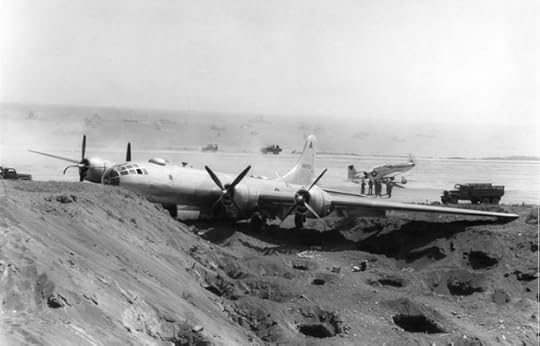
By "N. Airman"
Best Defense guest columnist
1. IT'S ALL ABOUT PAGE COUNTS. The Air Force's answer to being accused of
running a program that wasn't rigorous is to measure everything by page counts --
written and read -- especially as the number of pages relates to the school
maintaining civilian accreditation for its mandatory master's degree program. Unlike
AWC classes of the past, where "it's only a lot of reading if you actually
do it," we're compelled to read the ~150 pages every night. Instructors
quiz their seminars to ensure people are reading ("Bill, what was Mr.
Mearsheimer's thesis in last night's article?"). That said, however, no
one expects us to understand or apply what we read. The seminars are still
mutual reinforcement sessions. It doesn't matter what you learn as long as you
can convince the instructor you read and then participated in seminar with
whatever unsophisticated thought you wanted to spew. I've described this to
some using a Vietnam body count analogy: More pages must mean we're good. As a
result, I read a lot and that's it. I'm never asked to synthesize it. Nor am I
given time to reflect upon the reading and come up with questions or original
thoughts. Just move to the next 150 pages, please.
2. EVERYONE'S A STRATEGIST. The Air
Force doesn't have a career field that educates and grooms strategic thinkers. Instead,
AWC students are constantly told that we'll leave here with a "degree in
strategy" that will allow us to drop into any senior command structure and
give sophisticated military advice to our civilian leaders. Everyone here
receives the same watered-down strategy training (not education), under
constant reminder that any of us could be "the guy" who plans the
next big thing. Now, I consider myself a smart guy, but for the nation's sake, I'd better not be the officer who gives
senior civilian leaders strategic advice next year. I don't have the
education or background to do that. And 11 months of reading and writing X and
Y number of pages won't remedy that.
3. IT'S CONFUSED. The Air Force
touts its program as a serious graduate program, because ... it says it is and
it got someone to accredit it. However, the Air Force doesn't want to treat its
students like either graduate students or senior leaders. Instead, we get a
weird mix of military training, company-grade accountability techniques, and
the 8th grade. We have a student council that debates such issues as trash
pickup and snack bars. We're compelled to participate in "duel of the
schools" events against the Command and Staff College. Of course, you
can't compete successfully without practicing, so practice sessions are laced
into the duty day. Imagine the taxpayer response to my being paid really well
to attend AWC poker team practice. Again, this isn't extracurricular activity. This is mandatory, middle-of-the-day stuff.
Back in the classroom, the "leadership" course merely rehashed the
same material we got in our company-grade leadership school (with a brief
discussion of senior officers caught with their pants down thrown in). The Air Force
can't decide what it wants this place to be: graduate school, senior officer
education, PME, SOS part 2? It tries to be all at once, and doesn't do any one
of them well.
4. IT'S SOMEONE ELSE'S FAULT. So
far, we've learned that General McChrystal did nothing wrong; Rolling Stone screwed him. Two senior
officers who were relieved in the wake of the loss of control of nuclear bombs
spoke to us. They did nothing wrong; the nation just didn't tell them nukes
were still important. The generals who provided advice going into Iraq and
Afghanistan did nothing wrong; they just did what their civilian masters told
them to do. I see a trend here! What could be a great opportunity to dissect
and discuss the decisions senior leaders make, where they failed, and where the
institution failed them, became instead comfortable finger-pointing.
5. IT'S JUST NOT IMPORTANT. We're
constantly reminded by the leaders here that this year, above all, needs to be
a time for us to relax and reconnect with our families. Instructors add that
rigorous education and "break year" are incompatible concepts. Therefore,
instructors make it clear to us that if we wish to "kill ourselves"
and do the work, they'll be happy to support us. Otherwise, they recommend we
just "take the B." Why are we here, then?
"N. Airman" is
a two-decade
active-duty Air Force officer with a broad operational background and experience. He
is currently a student at the
Air War College
at
Maxwell Air Force Base
, unless
they
figure out who he is. (Tom said
that, not him.)
Before the next storm hits, why not base a Navy hospital ship in the Philippines?

So asks my smart friend, Navy
Capt. Henry Hendrix. It makes sense the amount of damage caused by storms is increasing
(though not necessarily their frequency or intensity). He wrote this in an email
exchange Tuesday that I am quoting, of course, with his permission:
I have been suggesting for about
five years now that we ask the Philippines to allow us to dock a hospital ship
there with her non-medical caretaker crew. This would allow the ship to cut its
response time to the disasters that predominate in the region. The medical crew
could be flown out and the caretaker crew could ensure that the ship would not
be trapped in port when a storm hits. I also think that we should suggest
basing a squadron of unarmed JHSVs there to aide with intra-theater logistical
lift. I think we could get the Philippine government to agree to both of these
suggestions and would create the core of an influence squadron there in the
P.I.
North Korea reportedly executing people for watching South Korean television
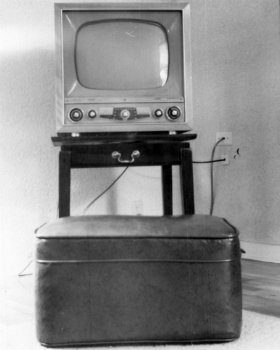
That
seems excessive, even for the thuggish
NoKo monarchy. The report seems a bit thinly sourced, but if it were true I
would not be surprised.
I
wonder if there is a good study of death penalties by society and crime -- that
is, what kinds of societies deemed what offenses to require the death penalty?
In
considering that, one thing to keep in mind is that death is not the ultimate
penalty. Even worse is penalizing an entire extended family, village, tribe, or
sect. That sort of collective punishment has happened surprisingly often, from ancient China to modern Syria.
November 12, 2013
Sir Michael Howard on Field Marshal Montgomery: A deeply flawed officer who excelled at leading large battle formations
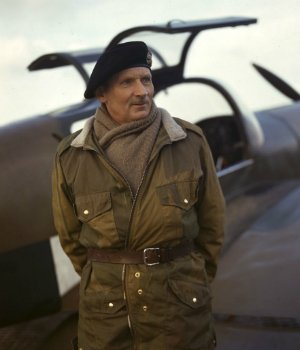
I don't know why,
but I only recently came across Sir Michael Howard's fine essay on Field
Marshal Montgomery. (I suspect the reason is that it is tucked away in a
collection of essays titled The
Causes of War.) I wish I had
read it while writing my most recent book, The
Generals -- I would have quoted a couple of passages.
He really
captures the guy well. "Montgomery was by no means a well-loved figure," he
begins. Among other things, he notes, the general was flawed by a "total
absence of generosity."
Montgomery's
strength, as many others have observed, was the set-piece battle. "He did not
adjust himself rapidly to the needs of that most difficult and necessary of
military operations, the pursuit.... He would take no risks."
Most of all,
"Montgomery had mastered the art which officers brought up in the small British
Army had so little chance to learn -- that of commanding large formations in
the field."
One quibble: Sir
Michael contrasts "the smoothness" of the British debarkation on the beaches of
D-Day with "the bloody shambles at the American." Yes, Omaha Beach was a mess,
so much so that Bradley mulled withdrawing. But I thought Utah Beach went
pretty smoothly, too, no? (Adrian Lewis, wanna weigh in here?)
Speaking of
Normandy, I didn't realize that Montgomery may have had roots in that area, in
an ancestral local warlord named Roger
de Mont Gommeri.
Thomas E. Ricks's Blog
- Thomas E. Ricks's profile
- 437 followers



